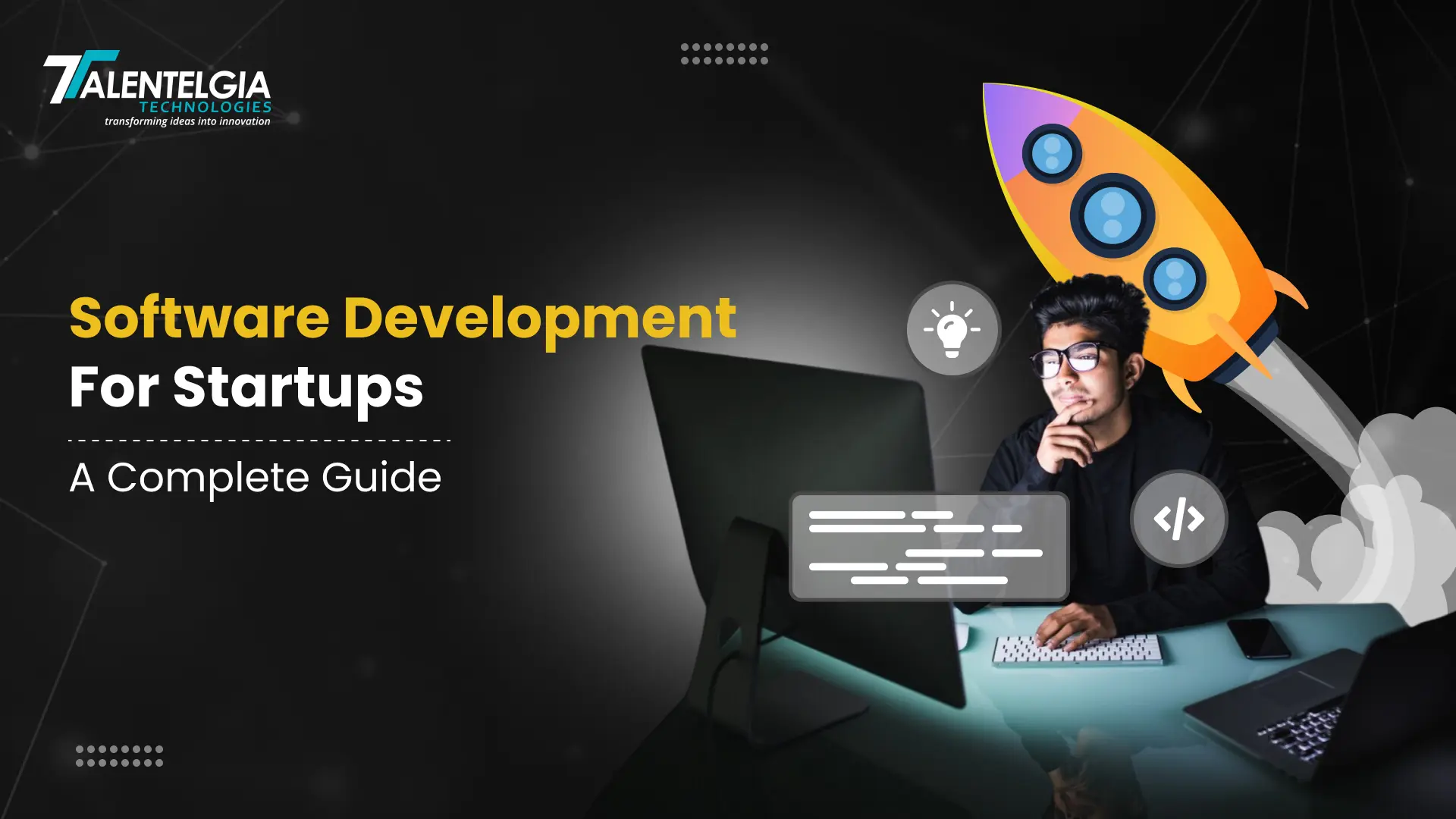Software integration and API development are two essential aspects of modern software engineering. They enable applications and systems that were built separately to work together, driving increased operational efficiency and business agility.
However, managing multiple software applications independently can lead to data inconsistencies, inefficiencies, and increased manual work. This is where software integration and API development come into play.
By integrating software systems and developing APIs (Application Programming Interfaces), businesses can streamline their processes, improve data flow, and enhance overall productivity.
In this blog, we will explore the significance of software integration and API development and how they can benefit your business.
Understanding Software Integration
Software integration refers to the process of connecting different software applications to enable them to work together seamlessly. It involves combining functionalities and data from disparate systems into a unified ecosystem. Software integration eliminates the need for manual data transfer, reduces duplication of effort, and ensures consistency across systems.
It allows businesses to leverage the strengths of multiple software applications while maintaining data integrity and improving overall efficiency.
The Role of APIs in Integration
APIs play a vital role in software integration. An API acts as a bridge that enables communication and interaction between different software applications. It defines a set of rules and protocols that govern how different systems can exchange data and access each other’s functionalities. APIs provide a standardized and secure way for software applications to communicate, making it easier to integrate them into a unified ecosystem.
They allow businesses to access and leverage the functionalities of external applications, such as payment gateways, social media platforms, or third-party services, to enhance their own software capabilities.
Benefits of Software Integration and API Development
1. Streamlined Business Processes
Software integration and API development streamline business processes by automating data transfer and eliminating manual tasks. This reduces errors, enhances data accuracy, and improves overall operational efficiency.
2. Enhanced Productivity
By integrating software systems, businesses can eliminate the need for manual data entry and duplicate efforts. Employees can focus on value-added tasks instead of spending time on manual data transfer or reconciliation. This leads to increased productivity and allows employees to allocate their time and skills to more critical business activities.
3. Improved Decision Making
Software integration provides a holistic view of data across systems, enabling businesses to make informed decisions based on accurate and up-to-date information. Integrated systems provide real-time insights and analytics, allowing businesses to identify trends, spot opportunities, and make data-driven decisions promptly.
4. Increased Customer Satisfaction
Integrated software systems improve customer satisfaction by enabling a seamless customer experience. For example, integrating a CRM (Customer Relationship Management) system with a support ticketing system allows customer service representatives to access customer information and history instantly. This results in faster response times, personalized support, and better customer service overall.
5. Scalability and Flexibility
Software integration and API development provide scalability and flexibility to businesses. As businesses grow and evolve, they can easily integrate new software applications or extend existing functionalities through APIs. This allows businesses to adapt to changing needs, incorporate new technologies, and scale their operations without disrupting existing systems.
Best Practices for Successful Software Integration and API Development
To ensure successful software integration and API development, consider the following best practices:
1. Clearly Define Integration Objectives
Clearly define the objectives and outcomes you want to achieve through software integration. Identify the key systems to integrate and determine the desired data flow and functionalities.
2. Choose the Right Integration Approach
Select the appropriate integration approach based on your business requirements. This could involve point-to-point integration, using middleware or an Enterprise Service Bus (ESB), or adopting a hybrid integration platform.
3. Design Robust APIs
When developing APIs, focus on designing robust and secure interfaces that are easy to understand and use. Consider factors such as data privacy, authentication, and versioning to ensure compatibility and future-proofing.
4. Prioritize Data Mapping and Transformation
Pay attention to data mapping and transformation during the integration process. Ensure that data is mapped accurately between systems and transformed as needed to maintain consistency and compatibility.
5. Implement Robust Testing and Monitoring
Thoroughly test the integrated systems and APIs to identify any potential issues or bottlenecks. Implement monitoring tools and processes to track system performance, identify anomalies, and proactively address any issues that arise.
6. Ensure Security and Compliance
Implement robust security measures to protect data during the integration process. Consider factors such as data encryption, access controls, and compliance with relevant regulations such as GDPR or HIPAA.

Conclusion
Software integration and API development play a crucial role in streamlining business processes, improving data flow, and enhancing productivity. By integrating software systems and leveraging APIs, businesses can automate processes, enhance decision-making, and provide a seamless experience for their customers.
However, successful integration requires careful planning, adherence to best practices, and a comprehensive understanding of business needs. Partnering with an experienced software development company like Talentelgia can provide the expertise and support needed to ensure a smooth and successful integration process. With their custom software development services, Talentelgia can help businesses leverage software integration and API development to optimize their operations, achieve scalability, and drive growth.


 Healthcare App Development Services
Healthcare App Development Services
 Real Estate Web Development Services
Real Estate Web Development Services
 E-Commerce App Development Services
E-Commerce App Development Services E-Commerce Web Development Services
E-Commerce Web Development Services Blockchain E-commerce Development Company
Blockchain E-commerce Development Company
 Fintech App Development Services
Fintech App Development Services Fintech Web Development
Fintech Web Development Blockchain Fintech Development Company
Blockchain Fintech Development Company
 E-Learning App Development Services
E-Learning App Development Services
 Restaurant App Development Company
Restaurant App Development Company
 Mobile Game Development Company
Mobile Game Development Company
 Travel App Development Company
Travel App Development Company
 Automotive Web Design
Automotive Web Design
 AI Traffic Management System
AI Traffic Management System
 AI Inventory Management Software
AI Inventory Management Software
 AI Software Development
AI Software Development  AI Development Company
AI Development Company  AI App Development Services
AI App Development Services  ChatGPT integration services
ChatGPT integration services  AI Integration Services
AI Integration Services  Generative AI Development Services
Generative AI Development Services  Natural Language Processing Company
Natural Language Processing Company Machine Learning Development
Machine Learning Development  Machine learning consulting services
Machine learning consulting services  Blockchain Development
Blockchain Development  Blockchain Software Development
Blockchain Software Development  Smart Contract Development Company
Smart Contract Development Company  NFT Marketplace Development Services
NFT Marketplace Development Services  Asset Tokenization Company
Asset Tokenization Company DeFi Wallet Development Company
DeFi Wallet Development Company Mobile App Development
Mobile App Development  IOS App Development
IOS App Development  Android App Development
Android App Development  Cross-Platform App Development
Cross-Platform App Development  Augmented Reality (AR) App Development
Augmented Reality (AR) App Development  Virtual Reality (VR) App Development
Virtual Reality (VR) App Development  Web App Development
Web App Development  SaaS App Development
SaaS App Development Flutter
Flutter  React Native
React Native  Swift (IOS)
Swift (IOS)  Kotlin (Android)
Kotlin (Android)  Mean Stack Development
Mean Stack Development  AngularJS Development
AngularJS Development  MongoDB Development
MongoDB Development  Nodejs Development
Nodejs Development  Database Development
Database Development Ruby on Rails Development
Ruby on Rails Development Expressjs Development
Expressjs Development  Full Stack Development
Full Stack Development  Web Development Services
Web Development Services  Laravel Development
Laravel Development  LAMP Development
LAMP Development  Custom PHP Development
Custom PHP Development  .Net Development
.Net Development  User Experience Design Services
User Experience Design Services  User Interface Design Services
User Interface Design Services  Automated Testing
Automated Testing  Manual Testing
Manual Testing  Digital Marketing Services
Digital Marketing Services 
 Ride-Sharing And Taxi Services
Ride-Sharing And Taxi Services Food Delivery Services
Food Delivery Services Grocery Delivery Services
Grocery Delivery Services Transportation And Logistics
Transportation And Logistics Car Wash App
Car Wash App Home Services App
Home Services App ERP Development Services
ERP Development Services CMS Development Services
CMS Development Services LMS Development
LMS Development CRM Development
CRM Development DevOps Development Services
DevOps Development Services AI Business Solutions
AI Business Solutions AI Cloud Solutions
AI Cloud Solutions AI Chatbot Development
AI Chatbot Development API Development
API Development Blockchain Product Development
Blockchain Product Development Cryptocurrency Wallet Development
Cryptocurrency Wallet Development About Talentelgia
About Talentelgia  Our Team
Our Team  Our Culture
Our Culture 
 Healthcare App Development Services
Healthcare App Development Services Real Estate Web Development Services
Real Estate Web Development Services E-Commerce App Development Services
E-Commerce App Development Services E-Commerce Web Development Services
E-Commerce Web Development Services Blockchain E-commerce
Development Company
Blockchain E-commerce
Development Company Fintech App Development Services
Fintech App Development Services Finance Web Development
Finance Web Development Blockchain Fintech
Development Company
Blockchain Fintech
Development Company E-Learning App Development Services
E-Learning App Development Services Restaurant App Development Company
Restaurant App Development Company Mobile Game Development Company
Mobile Game Development Company Travel App Development Company
Travel App Development Company Automotive Web Design
Automotive Web Design AI Traffic Management System
AI Traffic Management System AI Inventory Management Software
AI Inventory Management Software AI Software Development
AI Software Development AI Development Company
AI Development Company ChatGPT integration services
ChatGPT integration services AI Integration Services
AI Integration Services Machine Learning Development
Machine Learning Development Machine learning consulting services
Machine learning consulting services Blockchain Development
Blockchain Development Blockchain Software Development
Blockchain Software Development Smart contract development company
Smart contract development company NFT marketplace development services
NFT marketplace development services IOS App Development
IOS App Development Android App Development
Android App Development Cross-Platform App Development
Cross-Platform App Development Augmented Reality (AR) App
Development
Augmented Reality (AR) App
Development Virtual Reality (VR) App Development
Virtual Reality (VR) App Development Web App Development
Web App Development Flutter
Flutter React
Native
React
Native Swift
(IOS)
Swift
(IOS) Kotlin (Android)
Kotlin (Android) MEAN Stack Development
MEAN Stack Development AngularJS Development
AngularJS Development MongoDB Development
MongoDB Development Nodejs Development
Nodejs Development Database development services
Database development services Ruby on Rails Development services
Ruby on Rails Development services Expressjs Development
Expressjs Development Full Stack Development
Full Stack Development Web Development Services
Web Development Services Laravel Development
Laravel Development LAMP
Development
LAMP
Development Custom PHP Development
Custom PHP Development User Experience Design Services
User Experience Design Services User Interface Design Services
User Interface Design Services Automated Testing
Automated Testing Manual
Testing
Manual
Testing About Talentelgia
About Talentelgia Our Team
Our Team Our Culture
Our Culture

















 Write us on:
Write us on:  Business queries:
Business queries:  HR:
HR: 




